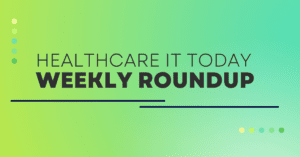The cost of living ranks top in U.S. voters’ minds among many issues Americans are feeling and following in late 2023. A close second in line is affordability of health care, as consumers’ household budgets must make room for paying medical bills — with prescription drug costs also very important as a discussion topic for 2024 Presidential candidates, we learn from the latest KFF Health Tracking Poll published 1 December. The monthly study focused on U.S. voters’ top issues and perspectives on the health system and care approaching the new year of 2024.
KFF fielded the study among 1,301 U.S. adults between October 31 and November 7, 2023, via online and phone.![]()
The first bar chart shows the ranking of key issues Americans want 2024 Presidential candidates to discuss — top-ranked and most-important being inflation and the rising cost of household expenses.
In second place in terms of total responses was the affordability of health care — a top-of-mind concern for U.S. voters, but ranking lower in top importance than gun violence and immigration. The future of Medicare and Medicaid as well as access to mental health care also rank high among two-thirds of U.S. adults.
COVID-19 has fallen to the bottom issue considered “very important,” for 22% of people — with climate change garnering over twice as many concerned voters at 48% of all voters. ![]()
Abortion was considered “very important” among 52% in this tracking poll, varying by the voter’s political party affiliation as well as gender.
The second bar chart illustrates data on voters’ abortion opinions, based on the question, “Do you think abortion should be legal in all cases, in most cases, illegal in most cases, or illegal in all cases?”
Overall, two-thirds of U.S. registered voters said abortion should be legal in at least most cases, with 9% of people overall saying abortion should be illegal in all cases.
By party ID, we see that 86% of Democrats think abortion should be legal in most or all cases, compared with 40% of Republican voters and 66% of Independent voters.
80% of women voters believe abortion should be legal in all or most cases. ![]()
Other partisan differences can be found in the third chart, arraying key issues on voters’ minds by party affiliation Democratic v. Republican.
The closest convergence between the two parties gauging which issues would be more trusted to handle were for the opioid crisis, where roughly the same proportion of voters said the Democratic Party would be trusted to do a better job, and 50% saying the Republican Party would do a better job dealing with opioids.
The issues where the Republican Party were seen to do a better job were on immigration, aid to foreign countries, and inflation.
But the Democratic Party was recognized as being more trusted to address gun violence, prescription drug costs, abortion, the future of Medicare and Medicaid, the future of the ACA, health care affordability, access to mental health, and climate change. ![]()
Health Populi’s Hot Points: Another area where Democrats, Independents and Republicans largely agree is the sobering question of whether things in the U.S. are going in the right direction — with most voters feeling pessimistic, as the last bar chart clearly indicates.

As this post goes live in the first week of December 2023, the U.S. Presidential election will take place in 335 days….with very few certainties at this stage of a very hazy national political picture.
What we-know-we-know is that home economics — for living (housing, utilities/energy costs, the price of petrol) — and health economics in the forms of deductibles, out-of-pocket costs, and prescription drug prices — are informing voters’ key issues that as of November would drive people to the polls.
Abortion in the post-Dobbs environment will also be a key issue for a number of voters (women and many younger men), and gun violence and opioids are public health crises about which most Americans also worry.
We’ll continue to track the KFF Tracking Poll and many others coming through our inboxes in the coming months leading up to 5th November 2024. Stay tuned to IRA components addressing prescription drug costs, and Medicare and Medicaid status (provider payments for the former, state-level moves for the latter).



